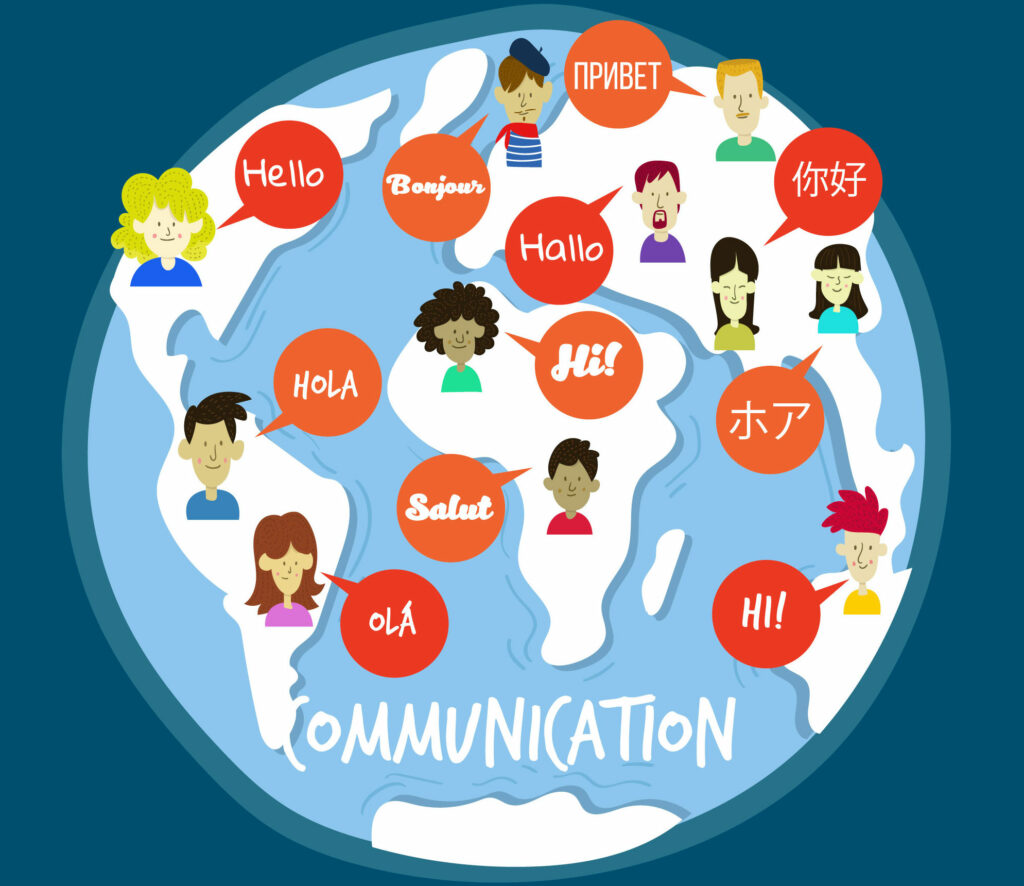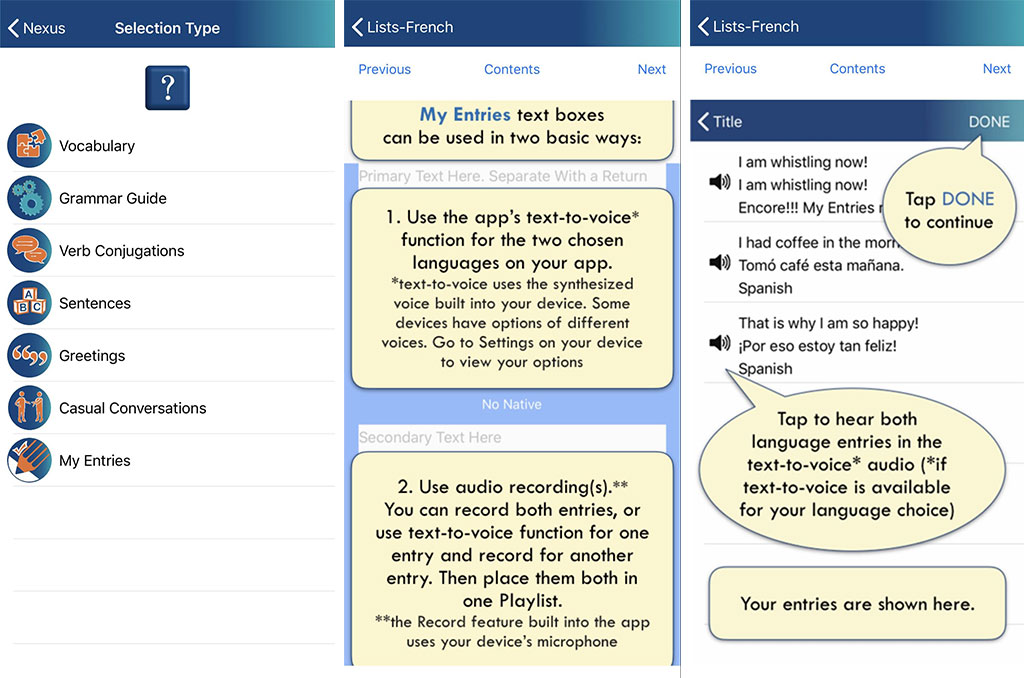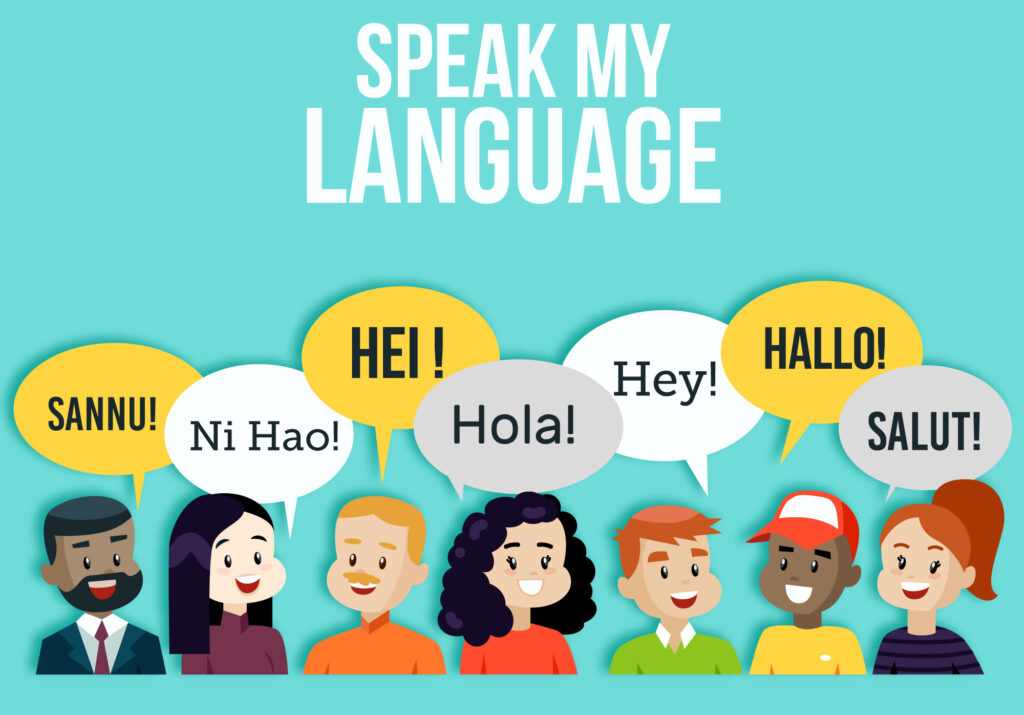What is Language Barrier and How to Overcome It
Modern communication technologies and increasingly faster modes of travel have nearly eliminated geographical barriers between people. Perhaps because of this, we have become more aware of the other barriers that make it difficult to discover fascinating new places, customs, and tastes, work with colleagues from different countries, and make friends online, among other things.
We’re talking, of course, about language barriers, which are more common than many people realize because they exist in several different forms. These barriers can even occur between people who speak the same tongue, due to different types of knowledge and proficiency. In this article, we explain what the language barriers are and provide several helpful tips on how to overcome language barriers in both your professional and personal life.

Most Common Types of Language Barriers
When most people hear the term “language barrier,” they immediately imagine speakers from two different countries trying to negotiate a price or discuss the directions to the nearest hotel. In reality, this is just one of many language barriers in communication (also called linguistic barriers) that speakers from countries around the world run into every single day.
Here’s a brief overview of some of the most common language barriers:
- Proficiency: When someone who doesn’t understand a certain language well is trying to communicate with someone who understands it perfectly, we say that there’s a language barrier in proficiency between them. While it may seem that this type of linguistic barrier is by far the most common, that’s actually not the case, especially in the workplace.
- Technical: The term technical language barrier is used to describe a situation when a gap in technical knowledge prevents two or more people from efficiently communicating with one another. Technical linguistic barriers go hand in hand with the use of professional jargon by experienced workers, which newcomers and outsiders typically struggle to understand. The computer programmer and the lawyer might both be speaking English to each other, but their technical lingo creates a barrier that keeps them from understanding what the other says.
- Cultural: The world is a big place, and what seems completely normal to people from one culture may seem strange or even bizarre to people from a different culture. For example, English speakers find it perfectly normal to use the same greeting (such as “Hi”) in both informal and formal situations, while the speakers of Japanese have a very complex system of greetings, which takes into account several shades of formality.
- Physical: Some language barrier problems are created by physical impediments, such as hearing loss or stuttering. Such conditions can affect both the ability to convey a message as well as the ability to understand what’s being said.
As you can see, overcoming language barriers requires a multipronged approach that takes into account the fact that not all speakers have the same barriers to overcome. This information is important to being prepared to conquer these barriers that might pop up in day to day life. In the next section of this article, we provide multiple tips that you can implement in your daily routine to break all the above-described language barriers with minimal effort.
How to Overcome Language Barriers?
All language barriers in the workplace or everyday life are challenging, but overcoming them is entirely possible if you select the right approach and adopt a problem-solving mentality. Being prepared for barriers means that you can work past them when they are encountered. Here are some tips that you can start implementing in your daily routine right now.
1. Improve Your Proficiency with Targeted Practice
If you find it difficult to communicate with speakers of a particular language, then the best thing you can do is actively practice in your spare time to improve your vocabulary and grammar. The more you practice, the better you will get at speaking and understanding. These days, there’s no need to enroll in an expensive class where you would receive only a small fraction of the teacher’s attention because you can practice from the comfort of your own home with the help of a language learning website or mobile app like Encore!!!.
Encore!!! offers a highly effective approach to learning that revolves around targeted repetition. Thanks to this approach, learners can reach intermediate fluency in just 38 weeks, depending on how difficult their target language is, of course.
Encore!!! works on iOS and Android devices, and the free version comes with 12 language pairs and text-based content. The paid version adds full audio content, customizable playlists, and the My Entries function, which is perfect for learning technical jargon and overcoming language barriers caused by it.

2. Introduce Cultural Context to Language Learning
When learning a foreign language, it’s easy to become overly focused on vocabulary and grammar. However, there’s much more to reaching native-like proficiency than memorizing long lists of words and doing grammar exercises. You also need to understand the cultural differences between your mother tongue and your target language, a common language barrier for immigrants and casual travelers alike.
Arguably the most effective way to introduce cultural context to language learning is to move to a country where the target language is spoken, but that’s not something many learners can do. Fortunately, movies, books, music, language learning podcasts, and online friends can be a great alternative, one that delivers not only excellent results but is also very cost-effective.
3. Use Other Methods of Communication
When dealing with linguistic barriers, you should always keep in mind that words are not the only method of communication that you have at your disposal. You can also convey meaning with your hands, facial expressions, or various visual aids, which are especially helpful when explaining complicated concepts to an audience that doesn’t understand your language as well as you do.
Remember though, that hand signals, facial expressions, and body language also can find you coming up against a language or cultural barrier. Make sure to familiarize yourself with the possible cultural faux-pas that can be encountered in order to avoid offending someone. Most will understand that you might not know what you did wrong, but it is still best to familiarize yourself with the easier to avoid mistakes.
If you’re not afraid of modern technology, then you can also use a real-time translator app such as Google Translate to be your own personal interpreter. Some companies are even selling translating earbuds that allow you to understand languages that are foreign to you. Visual translators are also now available on apps, letting you hold your phone or tablet up to see signs and other written words translated.
4. Use Simple Language
It doesn’t matter if you’re trying to communicate something highly technical to someone who has limited to no experience in your field, or you’re exploring a foreign country and need advice from the locals, it always helps to express yourself using plain words and sentences.

By omitting all jargon terms and bookish words, you eliminate opportunities for miscommunication and increase the chance that the person you’re communicating with will immediately understand you. Breaking the language barrier by keeping things simple also helps avoid many unfortunate cultural misunderstandings associated with the inappropriate use of idioms and politically charged terms.
5. Don’t Be Afraid to Make Mistakes
So far, we’ve provided multiple language barrier examples and four tips on how you can overcome them. Truth be told, most barriers can be overcome simply by trying and not being afraid to make mistakes. Mistakes are an important part of learning, and should be looked at as an opportunity for greater understanding.
Let people know that you are not a native speaker if you are struggling to express yourself clearly. Many people will try hard to help you figure out what you are trying to say. Some even might take the opportunity to practice speaking your language in return.
Always remember that around 40 percent of the world’s population speaks only their mother tongue, so even if your knowledge of your target language is still at a basic level, you’re linguistically better equipped than about 3 billion people, and that’s something. So, don’t be afraid to make mistakes and be ready to laugh when you make a particularly silly one. Mistakes are going to happen, and understanding your limitations will help you not take them too seriously or dwell on them when they happen.
Conclusion
There are many language barriers in communication that speakers of all languages can run into when discussing work-related issues, talking with friends, or exploring distant places.The good news is that all it takes to overcome them is the right mindset paired with an effective approach that revolves around targeted practice using an app like Encore!!!.
FAQs about the Language Barrier
1. What are examples of language barriers?
Language barriers are any barrier in communication between individuals that hinders understanding. An example would be a native English speaker communicating with someone with less proficiency. Another example might be someone with extensive technical knowledge speaking jargon to another person who lacks that knowledge.
2. Why is language barrier a problem?
Barriers in communication keep people from being able to understand each other clearly. This can be a major problem when it comes to work or even travel due to the potential for misunderstandings.
3. What are the 7 barriers to communication?
The 7 barriers to communication are Physical, Perceptual, Emotional, Cultural, Language, Gender, and Interpersonal. These barriers all interfere with communication in their own ways and must be overcome in their own way as well.
4. How do you break down language barriers?
The best ways to overcome language barriers are to increase your proficiency with a language, introduce cultural context to your learning, find other ways to communicate your thoughts, use simple words, and not being afraid to make mistakes. A combination of these methods will help you to overcome and break down barriers effectively.
5. How does language barrier affect communication?
Language barriers can cause misunderstandings between people and affect both personal and professional relationships. Work might not be able to be completed effectively, and the person who is not the native speaker might find themselves feeling behind or isolated.

